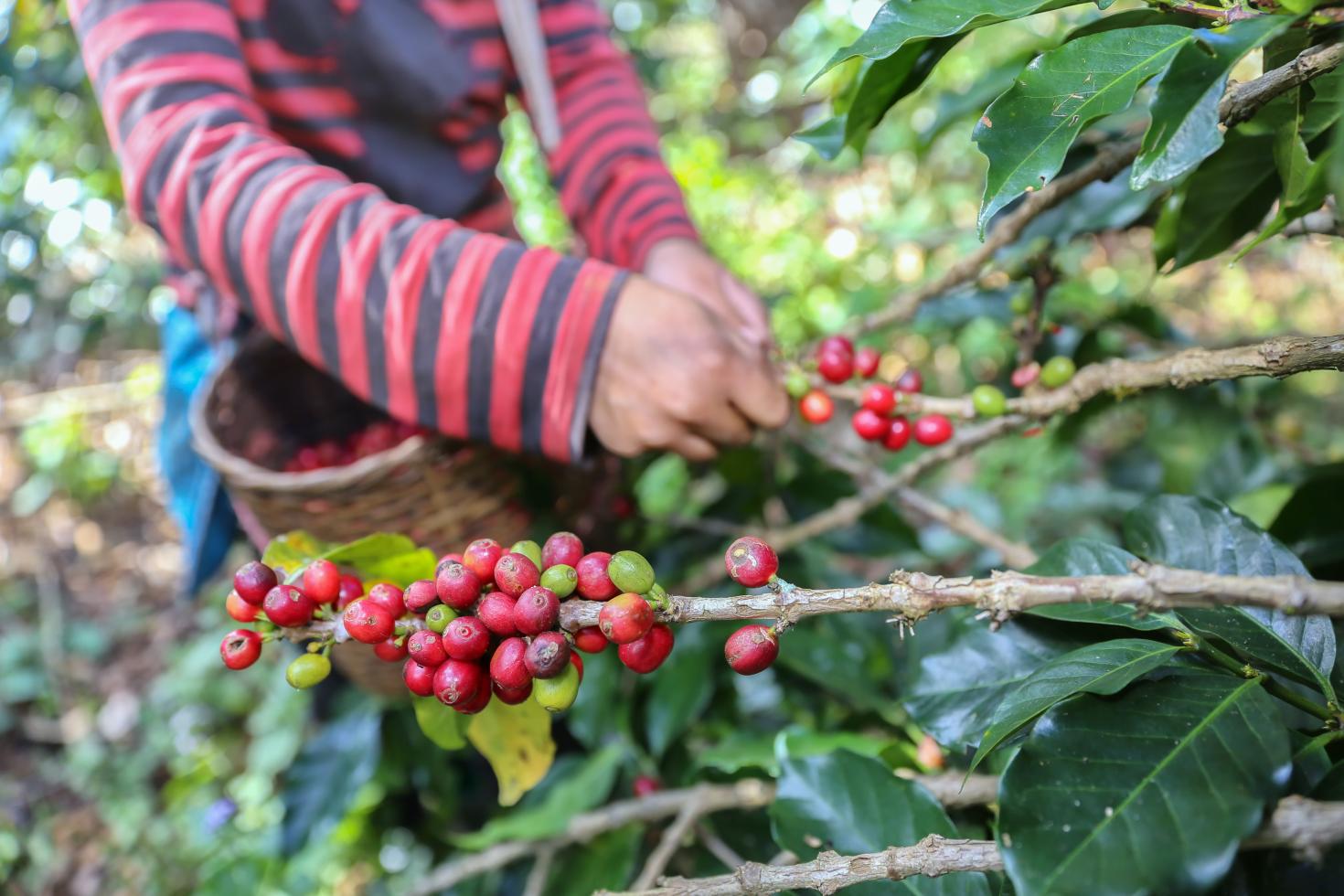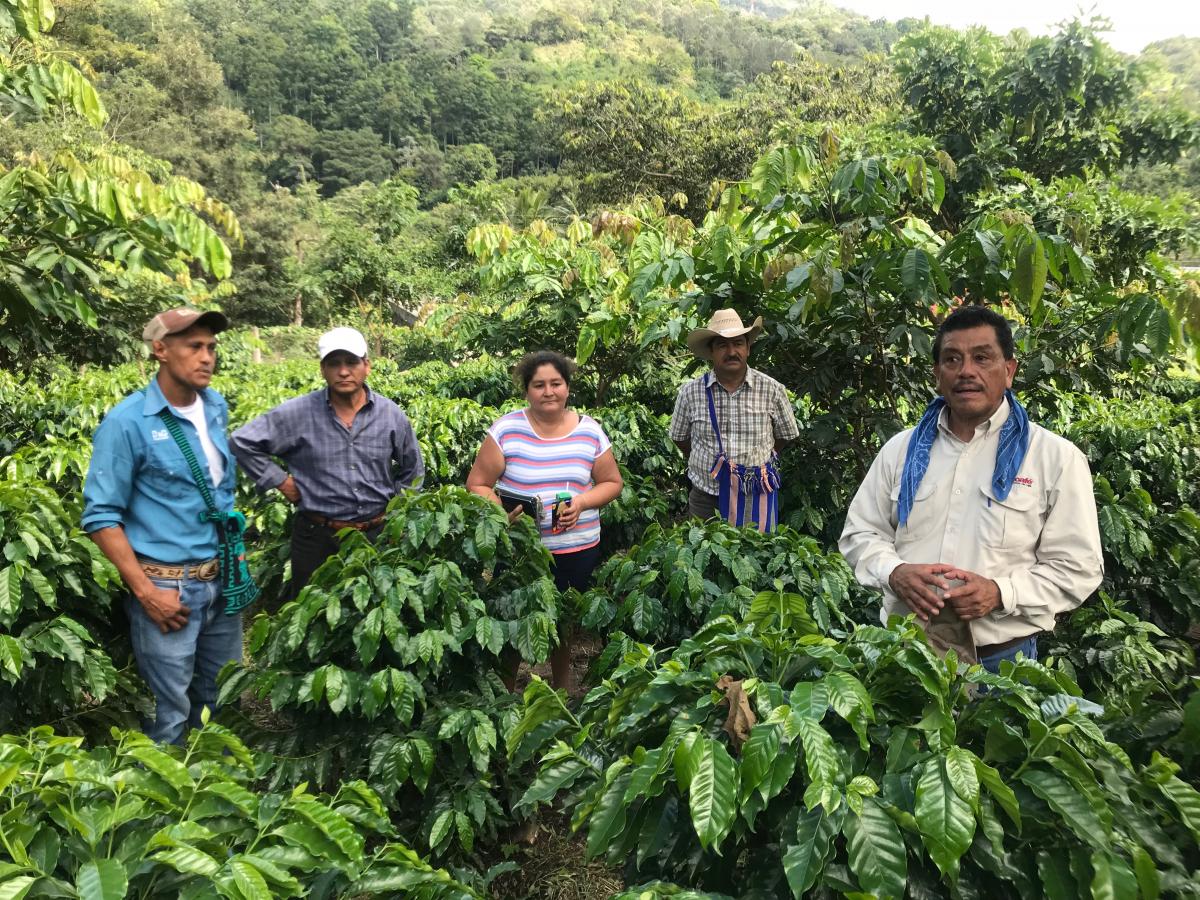6,000 small-scale coffee farms in Central America and the Dominican Republic boosted their sustainability

San Jose, 8 August 2019 (IICA). The implementation of a Regional Early Warning Network to combat coffee leaf rust, the drafting of a Strategic Plan for the Sustainable Development of Coffee Farming in Central America and the Dominican Republic, and the creation of a research platform to monitor and evaluate coffee rust races as well as assist farmers in controlling this disease: these are just a few of the achievements of the Central American Program for Integrated Coffee Rust Management (PROCAGICA).
The progress made by this initiative, which is funded by the European Union (EU) and has been implemented by the Inter-American Institute for Cooperation on Agriculture (IICA) since 2016, was presented during a meeting of the program’s advisory committee in San Jose, Costa Rica.
The committee, which provides policy guidelines for PROCAGICA’s work, is made up of representatives of the EU, IICA, the Regional Cooperative Program for the Technological Development and Modernization of Coffee Production (PROMECAFE), and the Central American Agricultural Council (CAC).
“Coffee is tremendously important for the Central American region; as the region’s main product of export to Europe, it has great economic and social significance. As part of its efforts to identify long-term solutions to coffee leaf rust and other problems caused by climate change, the EU believes it is important to closely monitor the positive progress achieved by PROCAGICA,” stated Alberto Menghini, Head of the EU’s Regional Cooperation Team.
In Central America, more than 500,000 producers, most of whom are small-scale farmers, grow coffee. Coffee farming directly and indirectly generates about two million jobs.
According to Harold Gamboa, Coordinator of PROCAGICA, the initiative has also assisted in modernizing farms, diversifying production, and managing coffee farms using technological alternatives, as part of its efforts to strengthen the sector. The program has also undertaken joint actions with coffee institutions in Guatemala, El Salvador, Honduras, Nicaragua, Costa Rica, Panama and the Dominican Republic.
“We have assisted more than 6,000 small-scale farmers in strengthening their capacity to implement climate change adaption and mitigation measures through the integrated management of coffee farming. Women and youth, who form part of 180 organizations, represent 34% and 14% of these producers, respectively,” remarked Gamboa.
“Technological models have been implemented in 4,100 production units with the aim of enhancing the viability of coffee production by implementing diverse and environmentally friendly practices with the potential to provide additional benefits in terms of conservation and biodiversity,” he added.

An additional achievement was the establishment of a network of female coffee farmers in the seven member countries of PROCAGICA, with the aim of empowering them, increasing their participation in farm management, and broadening their access to services. This, in turn, will enable these women and their families to boost their productivity and improve their quality of life.
“We intend to provide more comprehensive solutions to the issues facing coffee farming in the region. Together with a strategic partner like the EU and our counterparts, much remains to be done with respect to consolidating production organizations, improving their productivity, and transferring a greater amount of technological innovations,” added Federico Villarreal, Director of Technical Cooperation at IICA.
PROCAGICA, which will be completed in 2021, will also assist in overcoming new challenges related to marketing, certifications of origin, value-adding in production, and the transformation of products to facilitate international market access, among other areas.
“Our goal is to offer production models that are more sustainable and profitable within the current context, which is shaped by climate variability and coffee prices. We have been working hard to assist small-scale producers in ensuring that these actions on their farms cater to their needs and that of a globalized world,” explained Harold Gamboa.
During the meeting, held at IICA Headquarters in San Jose, the program’s advisory committee approved the creation of a regional reference laboratory for the molecular analysis of coffee rust races, in order to foster the genetic improvement of new coffee varieties that can better adapt to climate change.
More information:
Harold Gamboa, Coordinator of PROCAGICA.
Video Spanish only